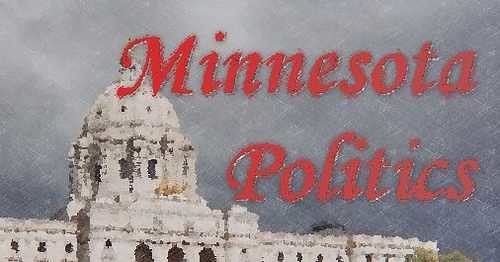Katherine Kersten's Korner
It's time for another Katherine Kersten's Korner, and today's kolumn is on a topic that is dear to Republican hearts: private schools. Since many far-right Republicans don't like public schools very much, they never pass up the chance to trot out an example of a private school where everything is being done correctly. Today, it is Ascension Catholic School in North Minneapolis. Even though many of the kids come from troubled backgrounds, and the school spends less than half of what Minneapolis public schools spend per student, students at Ascension are doing very well. Ergo, public schools are a huge mess, and we should have private schools for all.
...Right. To be honest, I appreciate some of her comments. My views on public education set me apart from a lot of Democrats: I was a product of private Catholic schools myself, and I have a very dim view of public schools as a result. However, unlike Kersten, I inhabit the reality-based community, and I actually understand that there are some pretty significant differences between how private schools and public schools work.
First, the good things about private schools. They do tend to have a very rigorous curriculum, something that I think public schools are lacking. There are many reasons why I think this is bad, and I'm not going to get into too deep a philosophical discussion here, but in general I think that expectations need to be raised dramatically at all levels of education, and that failing needs to be far more common. Too often schools expect very little from students and get it. Expecting too much and having to fail lots of students is far better than expecting too little, getting it, and just passing uneducated students on to the next teacher. This would also require removing the stigma from failure, however, so this is a pretty tall order.
It's also true that teachers at private schools tend to be a lot more dedicated than public schools. They have to be, since they are getting paid a good deal less than their public school counterparts. Now, of course, this isn't always the case, and I do remember several teachers at my private schools that seemed to work there not due to their dedication but due to the fact that they couldn't work anywhere else, but by and large teachers at private schools tend to be more interested in the lives of their students, with positive results.
So why can't we simply replace all public schools with private schools and see huge benefits to our educational system? Because private schools have one huge benefit over public schools: they can choose which students to accept. According to Kersten, Ascension has "no costly bureaucracy, no 'curriculum specialists.'" Why don't they have these specialists? Because they probably don't have any special-needs students. Kersten doesn't say how many children at Ascension have severe learning disabilities or other impediments to learning, but I'm willing to guess that the number is zero. At my Catholic schools, out of hundreds of students, we also had zero. Public schools, since they have to accept all kids, can't pick and choose their students like private schools can. The same goes for children who are serious distractions in the classroom. Private schools can (and believe me, they do!) simply expel students who are negatively affecting the learning environment. Public schools are once again trapped.
In addition, when parents are actually paying tuition to a school, they tend to be a lot more interested in their children's' studies. One of the foremost problems in education is how to get the parents involved, and private schools do this by taking money from the parents at regular intervals. Perhaps it is a bit of that ownership society. This doesn't have to set public schools apart from private schools, though; an argument could be made for at least partially funding public schools in this way, although it is hard to see exactly how this would work. Vouchers, incidentally, are not really the answer here, since vouchers from the government don't represent real money coming out of your pocketbook.
So yes, private schools can do a lot for certain students that would not flourish elsewhere, and yes, there is a lot wrong with the state of education in this country today. However, Kersten provides a very naïve view of what she appears to see as a panacea, that of private religious schools. It's going to take a lot more work, and a lot more discussion, than that to fix what ails us.



1 Comments:
Also: "Ascension teachers earn only 80 percent of what Minneapolis teachers are paid, Woods says."
As though this is a good thing!
But they see teaching not as a job but as a mission.
That's nice, but it's not an acceptable way to treat professionals.
Listen, I think of my (nonprofit) job more as a mission than as an occupation, but I still expect to get paid decently (and not at 80% of the going rate), to have time and energy to spend with my family, and to not have to pay for work materials out of my own pocket.
It is wonderful - and I'm not being snarky, not in this sentence at least - that there are teachers who are willing to work for less money to do something they believe in. But the fact is that those teachers are also ABLE to do that for any number of reasons... and I don't want to limit the pool of potential teachers to people who can afford to take a difficult job for not-very-much-money.
Anyway.
Post a Comment
<< Home